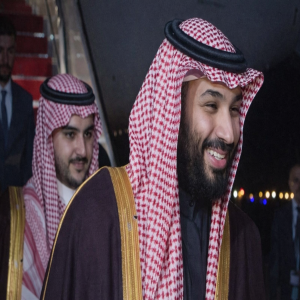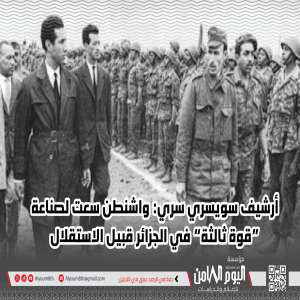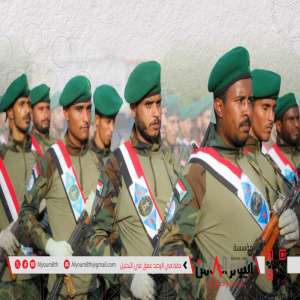"Tehran is at stake Zahedan."
Iran... The predicament of reckless politics… Demonstrations at home and international political movement confront the mullahs' regime
"Over the past four decades, the Democratic Alliance of the National Council of Resistance of Iran (NCRI) has continuously and tirelessly sought democratic change."

Conference of the Iranian opposition
Speakers at the "Free Iran" conference held in Paris recently criticized the US policy towards Iran, calling for changing its foundations and taking into account many of the facts related to it, especially the danger posed by the mullahs' regime.
The session, which was chaired by former US Deputy Secretary of State Lincoln Bloomfield, was attended by former US Attorney General Michael Mukizi, former US Deputy Secretary of State Robert Joseph, Former deputy commander of U.S. forces in Europe, Chuck Wald, and director of policy at the U.S. State Department, Mitchell Reese.
Mukizi said in his intervention that the US State Department included the MEK in the list of terrorist organizations in 1997, pointing out that the decision was political, aimed at appeasing the mullahs, was not preceded by an investigation about the organization and the National Council of Resistance, or taking into account that it is a democratic organization that adheres to human rights, The unfair listing lasted 15 years, and was then rescinded by court order, and the former U.S. official described the appeasement policy as shameful, He stressed the mistake of the US strategy that wants to reach an agreement with the mullahs' regime, which cannot be trusted and does not abide by any agreement.
For his part, General Chuck Wald stressed the absurdity of the nuclear agreement with the Iranian regime, warning that the mullahs' regime obtained an atomic bomb, and stressing that the stupidity of the appeasement policy cannot be ignored.
In their interventions, the speakers touched on the illegality of the rule of the Wali al-Faqih, Ambassador Reis warned of the danger of the Iranian regime to the world, pointing to its lack of popular legitimacy, The Iranian people demonstrate against it every day, and have focused on the absurdity of the idea that the mullahs' regime will gradually become moderate, especially since the regime does not enjoy popular legitimacy, Joseph stressed that the Iranian people are the biggest threat to the regime, and stressed the failure of the appeasement policy, whether in dealing with the regime's terrorism or aggression in the region, He began to obtain the atomic bomb, violated human rights, expressed his belief that the regime is unstable and its end is imminent, Joseph criticized the lack of correct information about Iran, saying that "in 2002 I got to know the MEK and the National Council of Resistance, at that time, I was in the White House, Responsible for nuclear disarmament, the head of my office explained to me the details of the conferences of the organization, I asked how the mujahideen know more than I about the nuclear program of this regime, How can a so-called terrorist group take a few steps after the White House press conference and expose such reports, Then I realized the magnitude of the sacrifices made by the members of this movement and learned that many of them lost brothers or fathers, who did not skimp on the realization of the ideal of freedom, I learned that the president-elect of the resistance, Maryam Rajavi, presented an alternative to the Iranian regime by presenting the ten-point program.
Emphasizing the need to adopt information and facts as the basis for correct policy and principles, General Chuck Wald said that "the MEK and the Iranian Resistance are an effective alternative," calling for support for this alternative rather than indifference, Robert Joseph stressed the need to "support the democratic opposition" on the one hand and restrict the regime on the other so that it does not take a chance to breathe, while putting human rights at the heart of politics.
Once again, the American spokesmen hung the bell, affirming their rejection of the reckless and futile policy pursued by the United States in Iran, represented by appeasement, They developed appropriate scenarios to confront the danger of the mullahs' approach, which threatens global stability and peace, thus providing a way out of the political impasse faced by those involved in keeping pace with the rule of the Wali al-Faqih.
Ban Ki-moon, Gordon Brown and Anatoly Kinak support Mrs. Maryam Rajavi's 10-point program
We join Ban Ki-moon, former Secretary-General of the United Nations, Gordon Brown, former Prime Minister of England, and Anatoly Kinak, former Prime Minister of Ukraine,To the global statement in support of the uprising of the Iranian people for a democratic republic with separation of religion and state on the basis of neither the Shah's regime nor the vilayet-e faqih regime, and support for the ten-point plan of Mrs. Maryam Rajavi, the elected president of the resistance for the period of transfer of power to the Iranian people.
Thus, the global manifesto now includes 120 signatures of former world leaders and a majority of 29 parliaments and councils, including 3,600 people elected from different countries on 5 continents. This is in addition to supporting 75 Nobel Prize winners in all fields.
The letter from the former leaders of 46 countries states: The 10-point plan presented by Mrs. Maryam Rajavi, President of the National Council of Resistance of Iran, includes free elections, Freedom of assembly and expression, abolition of the death penalty, gender equality, separation of church and state, autonomy for Iranian nationalities, and a non-nuclear Iran is a program compatible with democratic values and deserves support.
In their letter, 120 world leaders added that the Iranian people made it clear through their slogans that they reject all forms of dictatorship, whether the ousted Shah or the current theocracy, and that they reject any relationship with them.
The leaders of 46 countries in the world stressed that we believe that it is the Iranian people who decide their future. At the same time, we know that over the past four decades, the NCRI Democratic Alliance has continuously and tirelessly sought democratic change.
120 world leaders – the presidents of the United States, the prime ministers of England and Canada and European leaders – have advised that we urge you to stand in solidarity with the people of Iran in their desire for a democratic republic and the separation of church and state. There is no person, regardless of status, in which religious or genetic affiliation does not have any advantage over others
Decades of silence and apparent inaction on the part of the international community have fueled Iran's culture of impunity. Since the eighties, authorities in Iran have executed tens of thousands of protesters and political prisoners.
Referring to the massacre of political prisoners in Iran in 1988, they said that tragically, in 1988 alone, more than 30,000 political prisoners, the vast majority of whom were members of the opposition People's Mujaheddin, were brutally executed.
Baluch demonstrate against mullahs' regime
Over the past two days of Friday and Saturday, Baloch citizens continued their angry demonstrations, chanting their slogans rejecting the dictatorship of the mullahs and the Shah, despite the repression of the mullahs' apparatus.
They took to the streets of Zahedan after Friday prayers and chanted "Death to Khamenei", "I will kill whoever killed my brother" to show their anger at what has become of things in the country, they carried banners with phrases referring to "the crime of the Shah's regime and the vilayet-e faqih regime in Baluchistan", calling for an end to a hundred years of crime committed by the Shah regime and the vilayet-e faqih regime, and recalling the refusal of the people to compromise with the Shah's regime and their unwillingness to compromise with the vilayet-e faqih system.
The anger of the Baloch uprising erupted again against the killing and massacre regime The next day, the police station targeted the criminals involved in the bloody incident that occurred on Friday, September 30 last year, To emphasize that they have not forgotten the attempt of the murderous guards to stifle their voices on that "bloody Friday" by opening a hail of bullets that led to the death of more than 100 people in that massacre, This was followed by another bloody Friday in Khash 35 days later, during which the guards shed the blood of 20 other innocent Baloch, The people responded with the cries of "Death to Khamenei", "Basij, the Guards, you are Daesh in us" and "I will kill everyone who killed my brother," so that the anger of the oppressed Baloch citizens continues every Friday in different parts of Iran, and keeps the flame of the uprising against the regime of executioners going.
The confrontation with Khamenei's elements lasted 4 hours on Saturday, during the attack, at least two regime members were killed during the attack and several others were wounded, but some social networks in Baluchistan announced that the number of mercenaries killed reached 17.
Police and guards were stationed in the city of Zahedan after the end of the clashes, imposing an undeclared customary state on the city, punctuated by sporadic and blind shooting to cause terror and arrest many people.
Khamenei has tried to quell the uprising in recent weeks by increasing executions of Baloch prisoners on the one hand, and sending Guard commanders to Baluchistan, Starting with the Commander-in-Chief of the IRGC, Hossein Salami, and the Minister of Interior, Brigadier General Ahmed Vahidi, He vowed to rein in and intimidate the people, but the people of Baluchistan and the fighters taught the bloodthirsty thug of vilayet-e faqih a great lesson, Understand that they will not give up the blood of their brothers, sisters and sons, and will not be intimidated by killing, oppression and execution.
By continuing their protests, Baloch citizens affirm the continuation of uprisings and revolutions as an option to reach the goal of change desired by the Iranian people, The inability of the mullahs' regime to face the crises it has created over the past years, the inability of the rule of al-Wali al-Faqih to continue, and the urgency of the need for the democratic alternative to take over the country.



